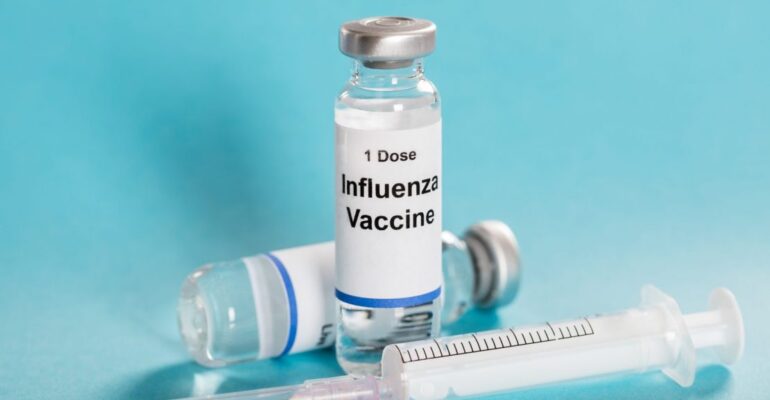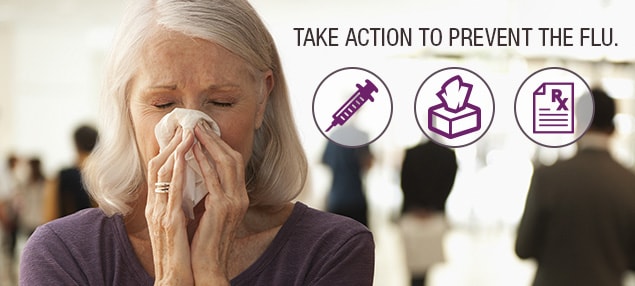National Influenza Vaccination Week
February 18, 2022 2022-02-28 3:35National Influenza Vaccination Week

National Influenza Vaccination Week
The Holidays are coming – Thanksgiving, Hanukkah, Christmas and the New Year. But so is the flu season! And if you live in California, Louisiana or Maryland there is already widespread influenza. In fact, according to the CDC, currently Louisiana has the most number of cases in the country (Weekly US Map: Influenza Summary Update). So before you get busy with all the festivities this is an ideal time to get your shot and to prevent yourself getting the sickly flu, allowing you to enjoy your Holiday time with family and friends.
What should you do next? There are 3 main ways to protect yourself against the flu:
- PREVENTIVE ACTION
- GET VACCINATED
- GET TREATMENT
Preventive Steps

The CDC recommends a yearly flu vaccine as the first and most important step in protecting against influenza and its potentially serious complications.
While there are many different flu viruses, flu vaccines protect against the 3 or 4 viruses that research suggests will be most common. Three-component vaccines contain an H3N2, an H1N1 and a B virus. Four component vaccines have an additional B virus component.
Flu vaccination can reduce flu illnesses, doctors’ visits, and missed work and school due to flu, as well as prevent flu-related hospitalizations. Flu vaccination also has been shown to significantly reduce a child’s risk of dying from influenza. Also, there are data to suggest that even if someone gets sick after vaccination, their illness may be milder.
Everyone 6 months and older should get a flu vaccine every year before flu activity begins in their community. CDC recommends getting vaccinated by the end of October.
For the 2019-2020 flu season, the CDC recommend annual influenza vaccination for everyone 6 months and older with any licensed, age-appropriate flu vaccine (inactivated, recombinant or nasal spray flu vaccines) with no preference expressed for any one vaccine over another. But vaccination of high risk persons is especially important to decrease their risk of severe flu illness -includes young children, pregnant women, people with chronic health conditions like asthma, diabetes or heart and lung disease and people 65 years and older.
Infants younger than 6 months are at high risk of serious flu illness but are too young to be vaccinated. Studies have shown that flu vaccination of the mother during pregnancy can protect the baby after birth from flu infection for several months. Additionally, people who live with or care for infants should be vaccinated. Vaccination also is important for health care workers, and other people who live with or care for high risk people to keep from spreading flu to them.
The National Handwashing Awareness Week ,DEC 1-7th
Other preventive ways –
- Try to avoid close contact with sick people.
- While sick, limit contact with others as much as possible to keep from infecting them.
- If you are sick with flu-like illness, it is recommended that you stay home for at least 24 hours after your fever is gone except to get medical care or for other necessities. (Your fever should be gone for 24 hours without the use of a fever-reducing medicine.)
- Cover your nose and mouth with a tissue when you cough or sneeze. After using a tissue, throw it in the trash and wash your hands.
- Wash your hands often with soap and water. If soap and water are not available, use an alcohol-based hand rub.
- Avoid touching your eyes, nose and mouth. Germs spread this way.
- Clean and disinfect surfaces and objects that may be contaminated with germs like flu.
What happens if I have the flu?
Flu-like symptoms include fever, cough, sore throat, runny or stuffy nose, body aches, headache, chills and fatigue. Some people, especially children, may have vomiting and diarrhea. People may also be infected with flu and have respiratory symptoms without a fever.
If you are sick with flu, antiviral drugs can be used to treat your illness. Antiviral drugs are different from antibiotics. They are prescription medicines (pills, liquid or an inhaled powder) and are not available over-the-counter. The four FDA-approved antivirals are :-
- oseltamivir phosphate (available as a generic version or under the trade name Tamiflu®),
- zanamivir (trade name Relenza®)
- peramivir (trade name Rapivab®), and
- baloxavir marboxil (trade name Xofluza®)
Antiviral drugs can make illness milder and shorten the time you are sick. They may also prevent serious flu complications. CDC recommends prompt antiviral treatment of people who are severely ill and people who are at high risk of serious flu complications who develop flu symptoms.
For people with high-risk factors, treatment with an antiviral drug can mean the difference between having a milder illness versus a very serious illness that could result in a hospital stay.
Studies show that flu antiviral drugs work best for treatment when they are started within 48 hours of getting sick, but starting them later can still be helpful, especially if the sick person has a high-risk health condition or is very sick from flu. Follow your doctor’s instructions for taking this drug.


